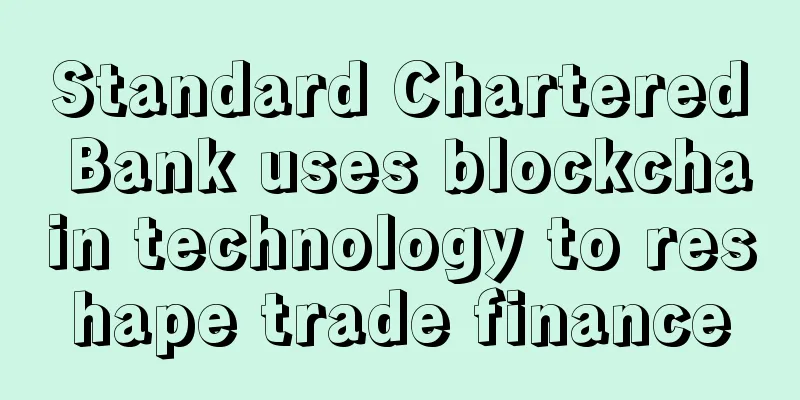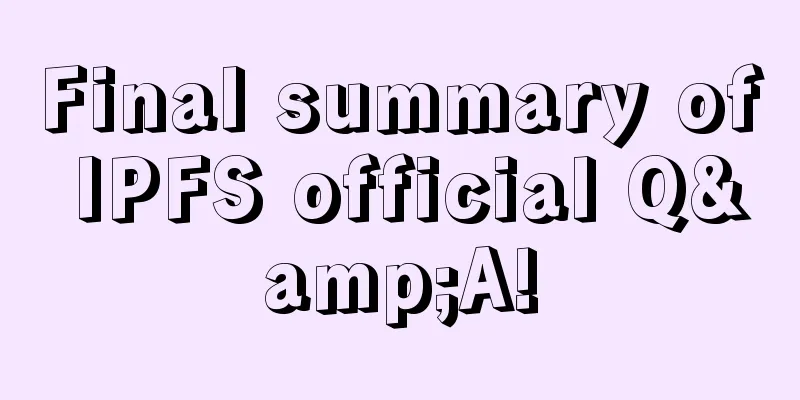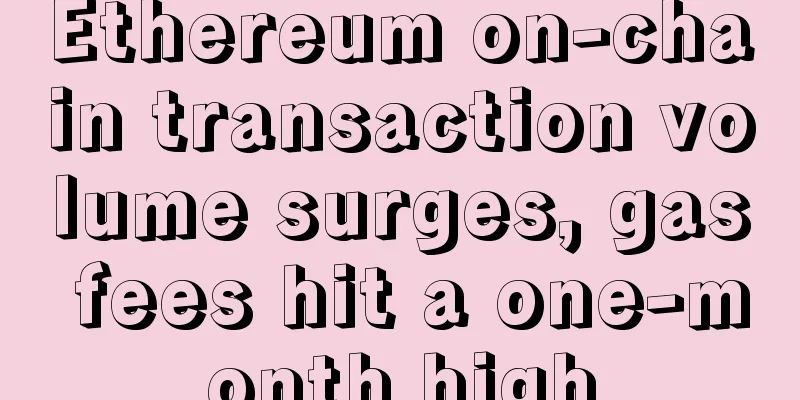Standard Chartered Bank uses blockchain technology to reshape trade finance

Translation: Krystal As the discussion among major banks on the "positive energy" significance of blockchain technology has "settled", the consensus that "this technology should be used" has "emerged" among major institutions. Currently, international trade is one of the areas where this technology is frequently used. Some institutions have expressed their willingness to use this technology in supply chain-related areas, hoping to ensure the safekeeping of physical goods and trade financing (one of the banking businesses, which refers to short-term financing or credit facilities provided by banks to importers or exporters related to import and export trade settlement). One of the more frequent use cases is international trade, where organizations interested in supporting supply chain-related areas use this technology to ensure the safekeeping of physical goods and trade finance. So far, IBM has publicly thrown its weight behind the effort, announcing supply chain use cases, while blockchain newcomer Wave is launching a trial with Barclays that found the big bank digitizing the paper money supply chain process. Standard Chartered recently announced (first revealed in December) that it was working with Development Bank of Singapore (DBS) to track trade finance, and both companies are now looking to expand their client base to include Singapore’s Infocomm Development Authority (IDA), the government’s IT and communications departments, and other banks. Gautam Jain, global head of digital, client access and product development at Standard Chartered, said the proof of concept (PoC) was moving forward and the bank was moving towards “full commercialisation” of the product. Gautam Jain is head of global client access, transaction services at Standard Chartered Jain told reporters:
Jain continued:
He also hinted (though not explicitly) that Standard Chartered was looking at additional trials as part of its push to “innovate and digitize” its own business. However, it was Jain who saw the project as having the biggest impact. Remove redundancy Similar to other blockchain startups, Jain said Standard Chartered and DBS are focusing on bills of lading (BLs). However, the problem is that when parties finance the same BL more than once, it means that customers get funds from different banks for the same invoice. He explained:
Jain pointed out that there is no way for banks to share invoice details as confidentiality is also a concern for all parties involved. However, Standard Chartered Bank and DBS have begun working together to seek the use of distributed ledgers to simplify and facilitate verification and detect duplicate financing. Consider Ripple Despite growing bullishness on “blockchain” among the world’s largest banks, when these institutions use the term they are unclear about what the technology actually is. To date, most large financial institutions are experimenting with the technology in private consortium settings, and even public announcements emphasize use cases rather than supporting entire experiments with the underlying technology. However, there is a growing consensus among large financial firms that the distributed ledger technology provided by Ripple is gaining traction, with Standard Chartered revealing that it is not only using the startup’s technology but also buying its consulting services. Jain said:
Another player is the global information technology company CGI Group, which announced a partnership with Ripple in October 2015. Last Thursday, Royal Bank of Canada announced that it has been trialing Ripple’s technology for remittances with the help of professional services firm Deloitte. Cost savings Jain is confident that applying blockchain technology to trade finance is expected to yield significant returns. Ultimately, he said that if PoC is used, overall costs can be reduced by reducing users' risk of fraud and losses.
Still, Jain believes that as the network grows, visibility of all potential fraudulent participants becomes apparent, and the project needs to adopt an open approach. Jain concluded:
|
<<: Japanese entertainment giant DMM accepts Bitcoin, blockchain says it is "overwhelmed"
>>: ISITC: Most securities firms plan to explore blockchain technology this year
Recommend
The defense battle for 29,000 is still going on, waiting for a new direction
All Fed officials support the plan to reduce the ...
What does it mean to have a mole on your face? What are the benefits of having a mole on your face?
Everyone has moles in different places on their f...
How to identify a man who is prone to cheating from his face
Throughout the ages, every woman does not want to...
How to build an anti-fraud blacklist based on blockchain?
A hot place will become cold! In China, the backg...
What is the fate line?
We have many lines on our hands, including career...
The World Economic Forum predicts that Bitcoin and blockchain technology will enter the mainstream market by 2027
The World Economic Forum (WEF) released a survey ...
Will a bump on the chin lead to financial loss? Is it good to have a plump chin?
No one wants to lose money, and it is possible to...
Will Ethereum L2's gas fee really drop by more than 10 times after the Cancun upgrade?
There is a consensus in the market today: after t...
Do people with low eyebrows and eyes have good luck?
Many people will look into other people's eye...
There is a mole in the eyebrow. There is a mole in the eyebrow.
There is a mole in the eyebrow, there is a mole i...
The bankruptcy reorganization plan is pending. Can FTX creditors get their principal back?
FTX exchange is expected to raise up to $16 billi...
What is the fate of a man with exposed nostrils? Will a man with exposed nostrils often lose money?
The nose is of course a very important part of th...
Bitmain officially revealed the important parameters of the new 7nm Antminer product.
Following the release of the first pre-heating po...
Transaction volume surges, Philippine convenience stores open Bitcoin buying and selling services
Blockchain company Coins.ph recently launched a s...
What are the effects of spots on the spouse's palace? Dissatisfaction in marriage
The Palace of Spouse in physiognomy is a part of ...









